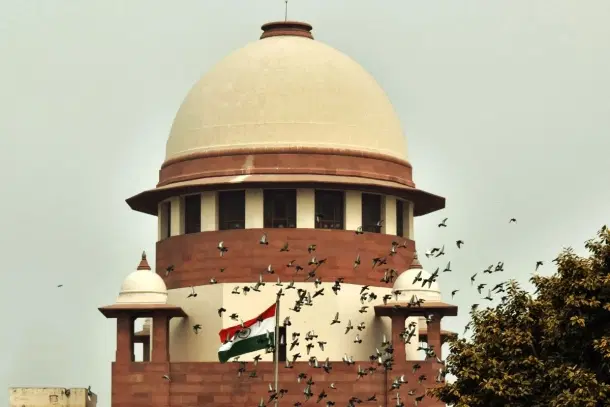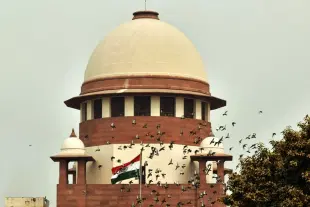Legal
Article 370 Case: Supreme Court Says Article 35A Took Away Three Fundamental Rights Of J&K Non-Residents
Swarajya Staff
Aug 29, 2023, 11:05 AM | Updated 11:13 AM IST
Save & read from anywhere!
Bookmark stories for easy access on any device or the Swarajya app.


Chief Justice of India DY Chandrachud on Monday (29 August) said that the now scrapped Article 35A of the Constitution had deprived individuals who did not reside in Jammu and Kashmir of key constitutional rights.
These rights include equality of opportunity, employment in the state government, and the right to purchase land.
He explained that this article excludes non-residents because the residents of Jammu and Kashmir have special rights.
Additionally, he agreed with the Centre's viewpoint that the Indian constitution holds a higher position than the J&K Constitution.
CJI made these observations during the 11th day of the hearing on the petitions challenging the scrapping of Article 370, which granted special status to Jammu and Kashmir.
Article 35A, along with Article 370, was abolished in August 2019.
Article 35A allowed the legislature of the erstwhile J&K state to define "permanent residents" and provide them with special rights and privileges in terms of public employment, immovable property, and settlement.
The CJI pointed out that the Constitution Order of 1954 applied the entirety of Part III of the Indian Constitution (the fundamental rights) to J&K.
However, Article 35A created an exception under three areas, namely, employment under state government, acquisition of immovable property, and settlement in the state.
"Equality in government employment under Article 16(1), right to acquire immovable property under Article 19 (1)(f) and Article 31 and right settlement in the State which was a fundamental right under 19(1)(e). Thus, by enacting article 35A you virtually took away the fundamental rights. There is direct right under Article 16(1). What was taken away was employment under the State government, so there was special rights for residents and (that was) taken away for non-residents. While 16(1) was preserved, 35A took away that fundamental right. So all the three fundamental rights and power of judicial review was essentially taken away by Article 35A," the CJI said, Bar and Bench reported.
The central government has consistently argued that scrapping the special status of Jammu and Kashmir was necessary to ensure a fair and level playing field.
Solicitor General Tushar Mehta, representing the Centre, stated that this move brings the people of Jammu and Kashmir on par with the rest of the country, enabling the implementation of welfare laws that were previously not enforced in the region.
An example provided by Mehta was the constitutional amendment that introduced the Right to Education.
"Any amendment made to the Indian Constitution would not apply to Jammu and Kashmir until it was invoked through Article 370… So Right to Education was never implemented in Jammu and Kashmir till 2019, because this route was not followed at all," he said, reports NDTV.





